Patients, families and organ donation – who should decide? (RE-POST)
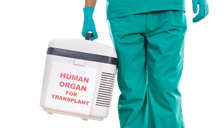
(NB: This post was originally posted in September 2012)
If you live in Wales, or plan to live – or study – there for longer than six months, by 2015 you are likely to find yourself automatically registered as an organ donor, whether you are fully aware of it or not. You will have to register specifically to opt out of this if you do not want to be on the organ donor list.
Yesterday the Welsh government closed a consultation on the drafting of a new bill to change the law on organ donation in Wales. The final version will be put before the National Assembly for Wales by the end of 2012 with the intention of a new law being passed by 2015.
The drive for this controversial change in the law is the demand for body organs for transplant, which far exceeds the organs available. There is a waiting list that is growing, and it is estimated that 500 people die each year while waiting for a transplant.
Clearly there is a problem. Providing organs for transplantation both saves and enhances life yet there are not enough to supply the needs of so many patients. So new ways are constantly being sought to increase donor numbers.
But that generates another problem because while some proposals and methods of increasing donation are uncontroversial and should be welcomed others are far more ‘ethically tricky’.
The Welsh Government has decided to go down one of the more controversial routes by drafting a Bill, now likely to become law, to introduce ‘deemed’ (ie. presumed) consent for organ donation.
If anyone living in Wales does not formally register that they want to opt out of donating their organs on death, they will be treated as consenting to donate. The default position will be for consent to be ‘deemed’ to have been given. I have argued elsewhere that this does not meet adequate standards of informed consent, and nor is it even necessary. Nevertheless, the Welsh Assembly is determined to go ahead with this.
However there is still time for some aspects of the Bill to be amended during the Assembly debates, otherwise we will end up in a situation where organs can be removed from dead patients without their active consent AND against the wishes of their family.
This then generates a further problem: where that leaves families.
Families of the deceased will be ‘sensitively encouraged to accept’ this ‘decision’ (if a ‘non-decision’ can be called a ‘decision’). The explanatory memo with the draft Bill states that: ‘…if there are very strong objections or distress [from the family], then organ donation is unlikely to go ahead. It is important to be clear, however, that this is not a legal veto because the law will recognise the deemed consent of the deceased as having precedence.’
Although the Welsh government has said all along that it will introduce soft opt-out legislation that would allow the deceased family a role in the final decision, the draft bill as it stands does not in fact allow for this. There is in fact NO provision in the draft Bill for family to veto the removal of organs from their loved ones. The accompanying memo concedes only that if there are very strong objections or distress, the taking of organs is ‘unlikely’ to happen. It does not state that it will not happen. Moreover, it says that the objections have to be ‘very strong’ or that family must be ‘very distressed.’
At the moment under the UK Human Tissue Act it is possible for a family to veto the removal of organs from someone who signed a donor card, or gave consent to donation in some other way consent made by a person to donate their organs, if the family have strong objections to donation. This is rarely healthcarewell nolvadex used (at most with 10% of possible donations).
Why should a family be able to veto donation?
1. Increased distress. The Bristol and Alder Hey controversies were fuelled by the perception that families had no real power in decision-making with respect to what happened to their loved ones body parts. They also showed how crucially important the body is to bereaved parents and friends, and illustrated the need to respect the human body, even in death. It is not simply raw material.
There are occasional situations where continuing with donation will increase distress for a family at a tremendously difficult time. The decision about whether to donate has to be made quickly, and families might well find that they cannot agree to donate. If their wishes not to donate are then overridden, even if in accordance with the wish of the deceased to donate, this might well increase the distress families are already feeling.
2. Cultural sensitivity. Not all cultures are as individualistic or materialistic as the mainstream Western tradition, and in some cultures, individuals wishes do not override the family’s. In such situations it may well be culturally insensitive to insist that they do.
3. Lack of trust. Some people fear that if they became seriously ill, they would receive less thorough treatment if they were donors than if they were non-donors because doctors want their organs. This fear – which need not be well founded to have an effect – would increase if the family’s views were known to be overridden. People look to their families to protect them when they cannot protect themselves. Publicly overriding families could make people and their families feel more vulnerable to doctors skimping on their treatment and so more reluctant to donate.
Moreover, some donors will only consent to donation of certain organs (there may be concerns about the possibility of brain and gonad transplantation, for example) and so will look to their families to ensure that their specific wishes are carried out.
4. Concern about consent. It will be almost impossible to guarantee that everyone is informed and understanding of ‘deemed consent’, knows their options and can easily opt out. Can consent be truly assumed from those who are disorganised, apathetic, disabled, less well educated or informed, isolated, lacking full capacity, of different languages and race, suffering from (temporary) mental illness, dependent, those who have less ready access to information and those who change their minds? The importance of allowing families a veto in such cases is obvious.
5. Ownership of the body. Underpinning the proposed change in the law is a change in the relationship between the individual and the state. The assumption about whose body it is begins to move from personal ownership to state ownership. Unless the state wishes to suggest that the deceased now belongs to it, the family must have the right to become his/her spokesperson.
As we have always said, CMF is supportive of organ donation in principle. However we are not supportive of presuming consent when it has not been given, nor do we support overriding the family and the important role they should play. God designed human beings in His image to be relational (Gen 1:26,27, 2:18-25) and the Bible everywhere assumes the significance of the family. Kinship, family identity and family heritage are important biblical themes as this CMF File explains.
Let’s hope that Assembly members take on board these concerns and amend this controversial Bill so that it makes plain in law that where the deceased has not given express consent, clinicians should not be able to take organs if the family object. Welsh organ donation proposals must give more than lip-service to family veto.
CMF’s response to the consultation on the Bill can be found here.

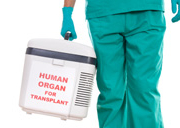
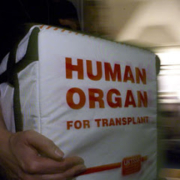
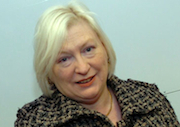

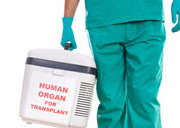
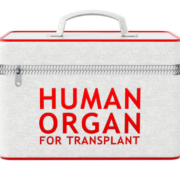
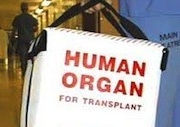
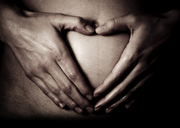


Leave a Reply
Want to join the discussion?Feel free to contribute!